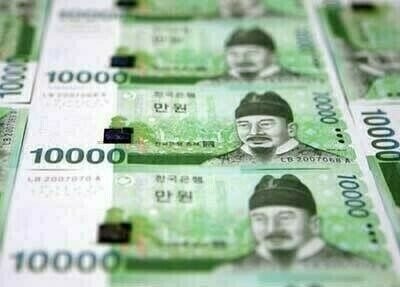BENGALURU: Equities in Vietnam and Thailand plunged even further on Friday as investors fled from risky assets, after US President Donald Trump’s unexpectedly severe tariffs fuelled fears of a global recession.
Thailand’s benchmark stock index slumped 2.8% to its lowest level in more than five years, bringing its year-to-date losses to about 19.4%.
Vietnam stocks tanked as much as 5.8% to their lowest level in 15 months, extending their slide after Thursday’s near 7% drop.
The selling in Vietnamese shares was fairly uniform across-the-board, indicating that investors would need more time and information to digest the likely impact of the US tariffs on the economy and corporate earnings, said Michael Kokalari, chief economist at VinaCapital.
Trump hit export-driven Southeast Asian nations with some of the heftiest tariffs, with Vietnamese exports getting a 46% levy and Thailand 37%.
Intense negotiations between Vietnamese and US trade authorities were expected in the weeks ahead, but there is no consensus on what the final tariff might be, Kokalari added.
“Given how high the initial negotiating position is, it is hard to see a final figure of anything less than 25%, which would represent a material hit to Vietnam’s GDP growth,” he said in a note.
Other Asian stock markets also fell, with shares in Malaysia
and the Philippines down about 1% each. The Philippine benchmark index is now down 20% from its October 7 peak.
Singapore stocks slumped 2.5% and were on course for their biggest one-day percentage drop in eight months.
US imposed 10% tariffs on the city-state despite the two countries having a free-trade agreement and Singapore running a bilateral trade deficit with the US
Currencies in the region were broadly higher against the bruised dollar.
The Malaysian ringgit, Philippine peso and the Thai baht appreciated between 0.3% and 0.5%.
Emerging markets, however, face the threat of sliding currencies and a possible deterioration of their sovereign credit.Barclays analysts believe the path of least resistance is for Asian currencies to fall under pressure.
The analysts doubt that emerging Asian governments will retaliate against the US with import tariffs of their own. Thus, the impact of tariffs on emerging Asia is likely to be more net-deflationary, according to Barclays, opening the door for central banks to ease rates.
Elsewhere, South Korea’s Constitutional Court upheld parliament’s impeachment and removal of President Yoon Suk Yeol.


